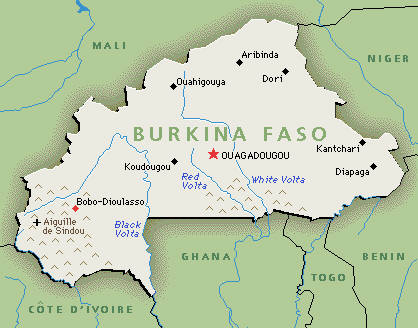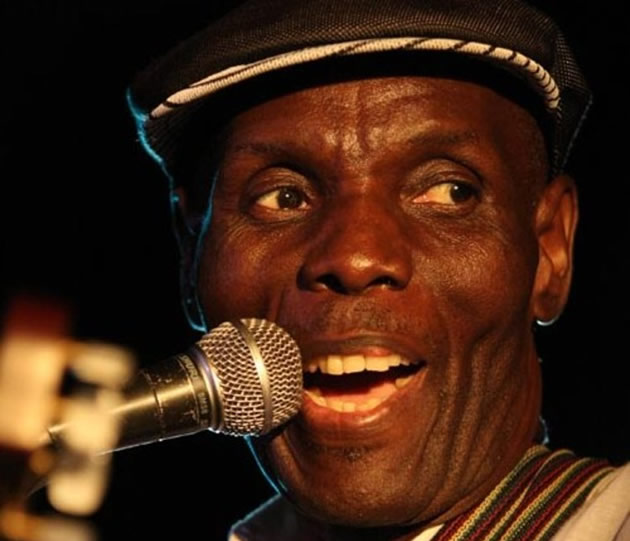Sankarist spirit resurges in Burkina Faso

Ann Garrison Correspondent
IN 1983, a military clique in Burkina Faso assassinated the anti-imperialist head of state Thomas Sankara, plunging the nation back into the clutches of US and French neocolonialism. The people this year ousted the assassins and their presidential guard, in two mass rebellions. Burkina Faso’s Presidential Guard, a military elite created by long time dictator Blaise Compaoré, seized power in mid September, but a popular uprising backed up by the Burkinabe army has reversed the coup and restored civilian rule — twice.
These events unfolded nearly 11 months after hundreds of thousands of Burkinabe filled the streets of the capital, set the Parliament Building on fire, and forced Blaise Compaoré to step down.
Compaoré, who ruled Burkina Faso for 27 years, is infamous for organising the assassination of the country’s revolutionary leader Thomas Sankara with the help of France and the French backed government of the Ivory Coast.
At least 10 citizens of Burkina Faso were killed and more than 100 were wounded when the country’s presidential guard fired on the uprising against the coup. In a decisive moment the Burkinabe army of 11 000 surrounded the capital and demanded that the elite presidential guard behind the coup disarm.
After this year’s mid-September coup, negotiators from Ecowas, the Economic Community of West African States, brokered a deal in which both the army and the presidential guard stood down until power had been formally restored to the transitional government on September 26, 2015.
French President Francois Hollande warned all parties in Burkina Faso not to try and stop the Ecowas mediation. Ecowas produced a draft proposal, which would have allowed the presidential guard to return to their previous armed authority, despite the attempted coup, and would have allowed the party of deposed dictator Blaise Compaoré to participate in upcoming elections.
These elements of the agreement were very unpopular with the people of Burkina Faso, who took to the streets with signs reading “No Amnesty for Assassins” and told reporters that they had little use for Ecowas. As soon as the transitional government was restored to power, it invoked African Union principle and the will of the Burkinabe people to disarm and disband the presidential guard and exclude coup plotters from the upcoming election.
US and French special forces in Burkina Faso
Burkina Faso hosts both US and French special forces and has served as an important military ally of both France and the United States in West Africa, under the guise of counterterrorism. Dr. Gnaka La Goke, an African History professor at Maryland’s Montgomery College, speaking to WBAI AfrobeatRadio, said that anyone who thinks that the presidential guard would have attempted a coup d’état without the knowledge and complicity of the US and France is refusing to see how things are done in the 21st century.
He said: “If you want to talk about how things are, the different buildings in Burkina Faso, from the presidential palace, there’s the presidential guard, a military base, then the American Embassy . . . Two weeks before the coup d’état, I heard that the State Department sent a warning to its citizens, telling them that if they go to Burkina Faso, they should be cautious, they should not go out at night, they should avoid some locations because something could happen in Burkina Faso . . . in February 2015, there was a military training of some officials, of African military officials, to fight against terrorism . . . (and) training (was conducted by) American military experts.”
“So, if somebody wants to tell me that Gilbert Diendéré (the coup leader) just decided to do this on his own, or that Blaise Compaoré supported him, or that France and America did not have anything to do in that coup d’état, I think that the person is either expressing bad faith, or the person does not want to look at the reality, and the person does not want to see how things are done in this world of the 21st century.”
The coup d’état in Burkina Faso appears to be the second US-backed African coup to fail this year, after it became clear that there was too much popular will against it. The first was in Burundi in May.
On September 28, the New York Times reported that the Burkinabe presidential guard, formally known as the Regiment of Presidential Security, or RSP, had refused to disarm. The Times quoted a transitional government statement that said, “This handful of die-hards has taken hostage not only members of the former RSP who wanted to rejoin the side of reason, but also officers of the national armed forces tasked with disarming them. But even more seriously, the government knows that they have called foreign forces and jihadist groups to their rescue to realise their dark scheme.”
September 29: The BBC reported that Burkina’s national army had surrounded the presidential guard base, that gunfire had been heard, and that the Ouagadougou airport had been closed.
Ann Garrison is an independent journalist based in Oakland, California. — Black Agenda Report.









Comments